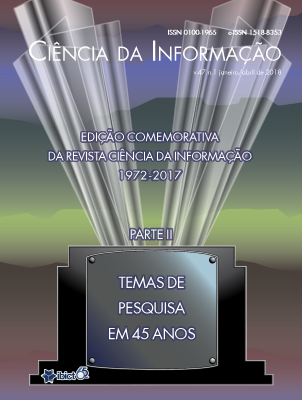Ontological approach to the normative dimension of organizations: an application of Documents Acts Ontology
DOI:
https://doi.org/10.18225/ci.inf.v47i1.4436Keywords:
Corporations, Knowledge representation, Ontology, Social ontology, Document ActsAbstract
Modeling and knowledge representation are indispensable activities for developing information systems in the scope of modern corporations. In order to accomplish these activities, one should analyze a corporation both in terms of its physical structure and in terms its rules structure. The former we call here the descriptive dimension and the later prescriptive dimension. In this paper, we briefly discuss the descriptive dimension, and focus on the prescriptive dimension to explain the rights and obligations that corporations have to manage. After presenting background theories, we analyze the corporation through ontological principles taking advantage of theories of the so-called social ontology, namely, social acts, speech acts and document acts theory. The relevance of developing such analysis rests on the possibility of outlining a strong understanding of corporations by characterizing the nature of rights and duties obligations connected to corporative processes using Basic Formal Ontology (BFO) and Documents Acts (D-acts) Ontology. In doing this, we introduce a formal framework suitable to be applied in information systems working in the context of modern technologies like the Semantic Web.
Downloads
Downloads
Published
Issue
Section
License
- This publication reserves the right to modify the original, regarding norms, spelling and grammar, in order to maintain the standards of the language, still respecting author writing style;
- The final proofs will not be sent to the authors;
- Published works become Ciência da Informação's property, their second partial or full print being subject to expressed authorization by IBICT's Director;
- The original source of publicaton must be provided at all times;
- The authors are solely responsible fo the views expressed within the article;
- Each author will receive two hard copies of the issue, if made availalbe in print.




























